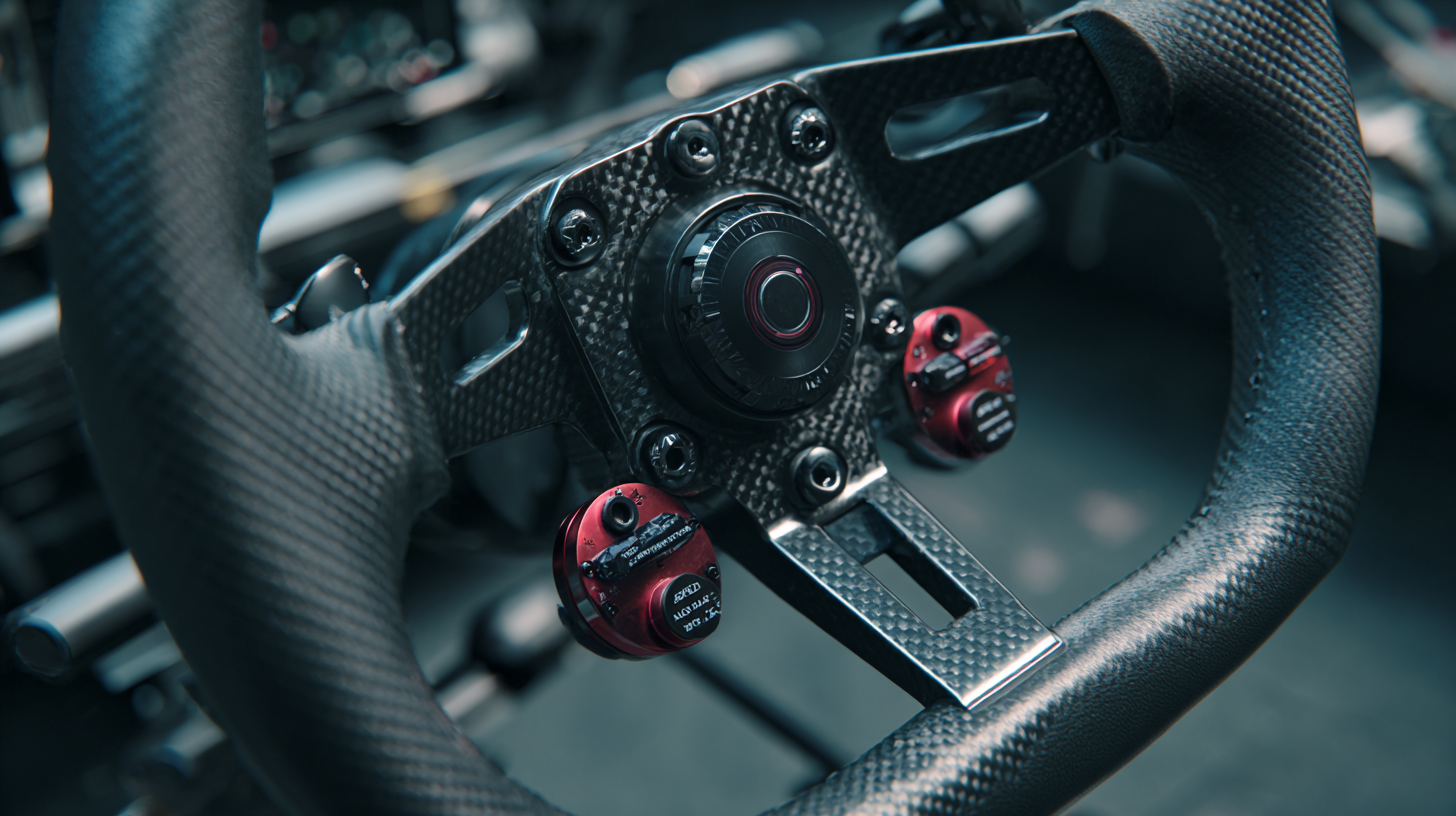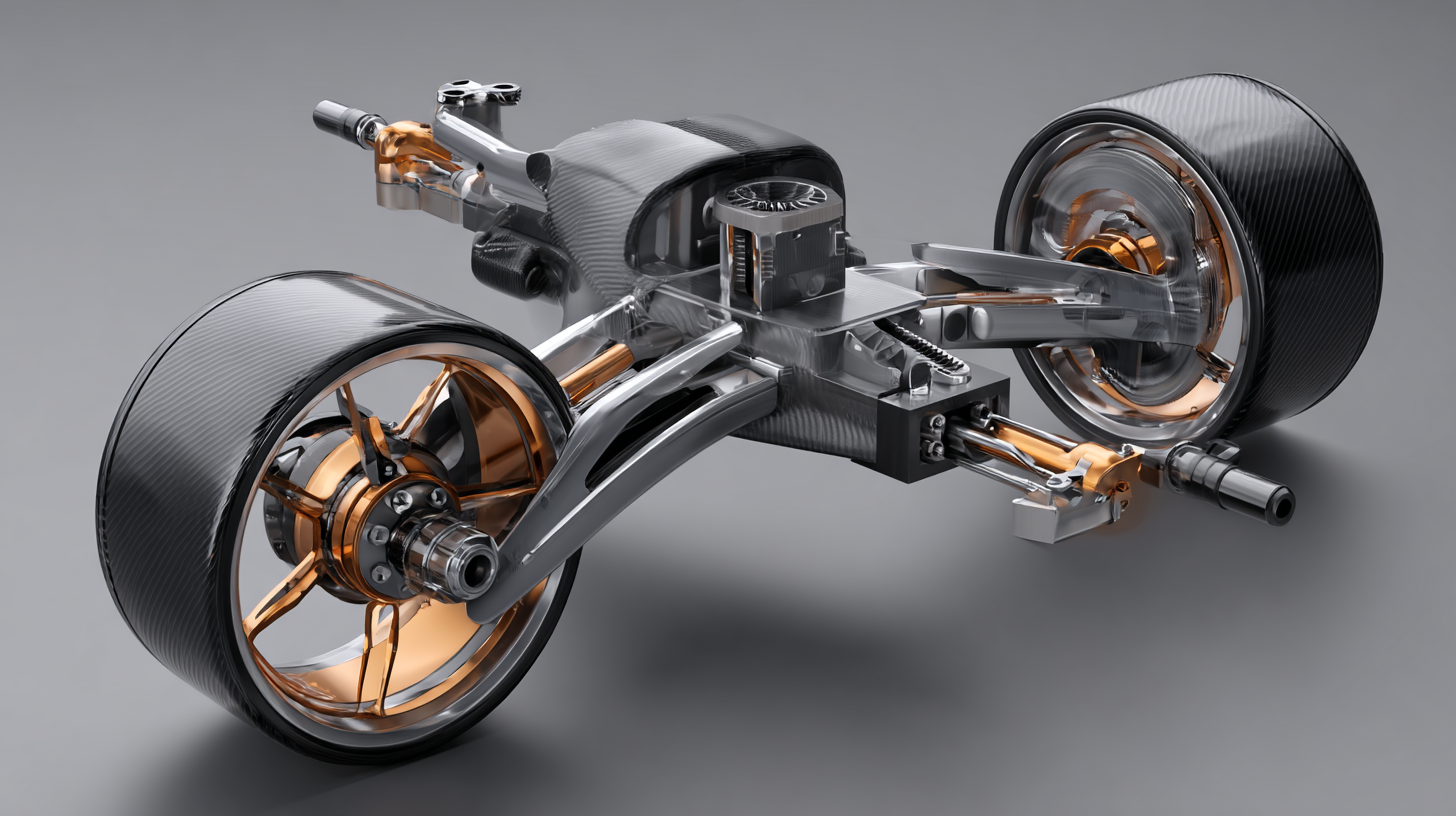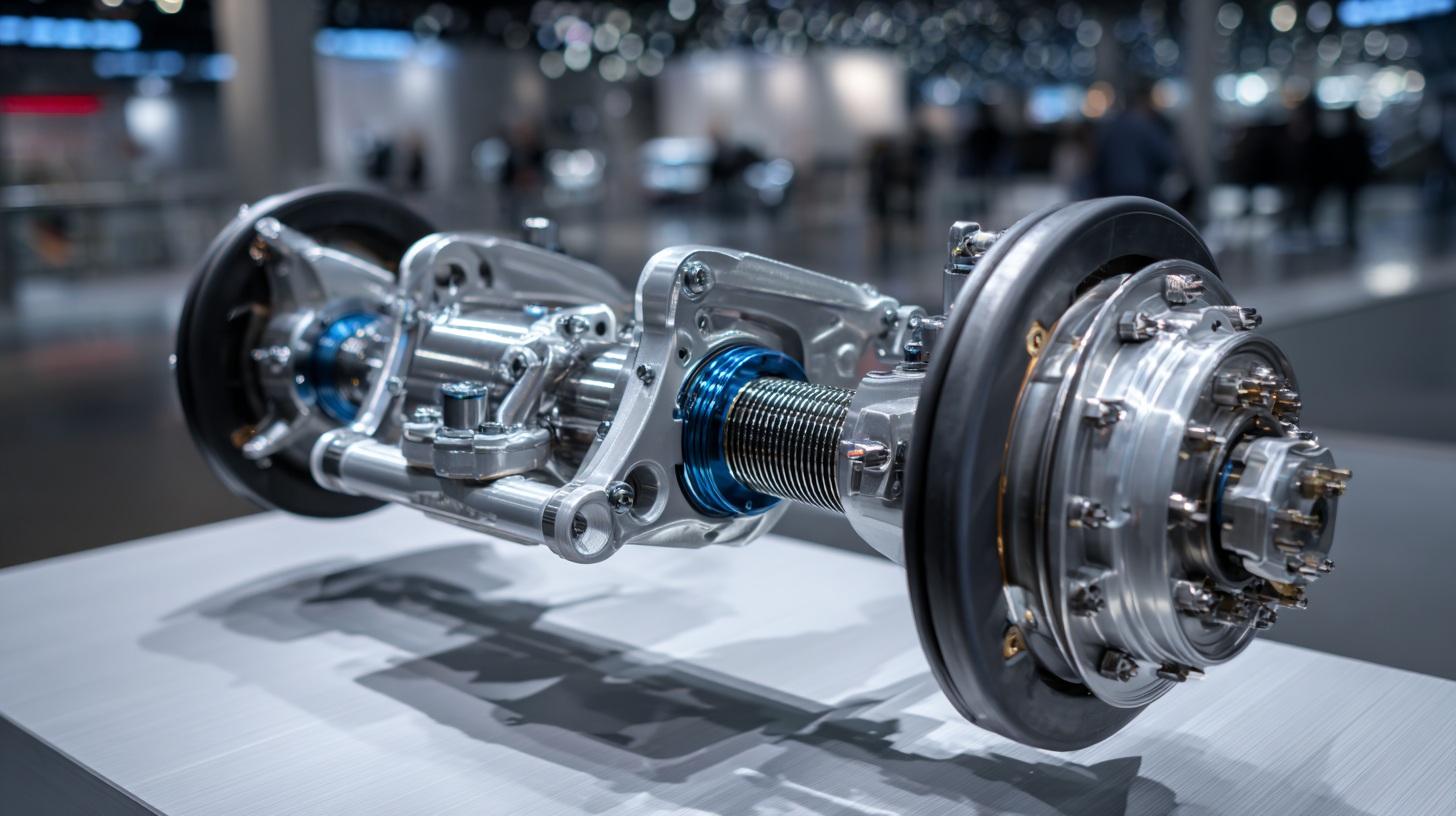Exploring Innovative Steering Parts for Enhanced Vehicle Performance in 2023
The automotive industry is continuously evolving, and in 2023, the focus on enhancing vehicle performance through innovative steering parts has become more critical than ever. According to a recent report by Allied Market Research, the global steering gear market is projected to reach $36.6 billion by 2025, driven by the increasing demand for advanced vehicle technology and improved safety features. As manufacturers prioritize precision and responsiveness in vehicle handling, exploring novel steering components such as electronic power steering (EPS) and active steering systems is essential. These advancements not only boost overall driving experience but also contribute to better fuel efficiency and reduced emissions, aligning with the industry’s shift towards sustainability. In this context, this article delves into the latest innovations in steering parts that promise to enhance vehicle performance and meet the growing expectations of consumers and regulatory standards.

Exploring Emerging Steering Technologies: Benefits and Applications in Automotive Design
The automotive industry is undergoing a transformative shift with the emergence of innovative steering technologies that significantly enhance vehicle performance. As reported by the International Society of Automotive Engineers (SAE), advanced steering systems such as steer-by-wire are increasingly gaining traction due to their potential to improve vehicle dynamics and safety. These systems eliminate mechanical linkages, replacing them with electronic controls that provide a more responsive and precise steering experience. In 2023, it is estimated that the market for steer-by-wire technology will grow by over 15%, driven by the need for greater integration with advanced driver-assistance systems (ADAS).

Moreover, new developments in adaptive steering mechanisms are showing promising results in terms of fuel efficiency and overall vehicle handling. According to a study published by the Automotive Research Association, vehicles equipped with variable ratio steering can reduce the steering effort required by up to 20% during tight maneuvers, which not only enhances comfort but also contributes to better fuel economy. Automotive designers are now prioritizing these technologies as they look to optimize performance while ensuring compliance with stricter emissions regulations. As we move further into 2023, the integration of these emerging steering technologies will play a crucial role in shaping the future of automotive design.
Analyzing the Role of Adaptive Steering Systems in Improving Driver Control and Comfort
The evolution of steering systems has significantly transformed the driving experience, particularly through the implementation of adaptive steering technologies. These systems utilize sensors and algorithms to adjust the steering response in real-time, ensuring that driver control is finely tuned to varying conditions. For instance, at lower speeds, the system can increase the steering ratio, making it easier to maneuver in tight spaces. Conversely, at higher speeds, the system can reduce the steering ratio, enhancing stability and confidence during high-speed maneuvers.
Furthermore, adaptive steering systems also focus on improving driver comfort by minimizing physical strain during extended driving periods. By dynamically adapting to the driver's inputs and preferences, these systems can provide a more intuitive driving experience. Modern vehicles equipped with such technology allow drivers to enjoy a more relaxed posture, reducing fatigue and enhancing overall comfort. In this dynamic interplay between technology and human factors, adaptive steering continues to push the boundaries of vehicle performance, making it an essential feature for modern automobiles in 2023.
Exploring Innovative Steering Parts for Enhanced Vehicle Performance in 2023
| Feature | Description | Impact on Performance | User Benefits |
|---|---|---|---|
| Adaptive Steering | Automatically adjusts steering response based on speed and driving conditions. | Improves maneuverability and stability at various speeds. | Enhances driver control and reduces fatigue during long drives. |
| Variable Gear Ratio | Changes the steering ratio based on the steering input and vehicle dynamics. | Provides quick responses at low speeds and stability at high speeds. | Improves cornering ability and overall driving comfort. |
| Steering Wheel Feedback Systems | Provides real-time feedback to the driver about road conditions. | Enhances awareness of vehicle dynamics and road traction. | Increases confidence and safety in driving situations. |
| Integration with Assistive Technologies | Syncs with navigation and safety systems for improved steering inputs. | Ensures precise vehicle guidance in complex traffic scenarios. | Facilitates a more relaxed and safer driving experience. |
Evaluating the Impact of Lightweight Materials on Steering Component Durability and Performance
As the automotive industry evolves, the emphasis on lightweight materials in steering components is becoming increasingly significant. According to the International Energy Agency (IEA), the production of traditional materials like steel is energy-intensive, contributing substantially to greenhouse gas emissions. Transitioning to lightweight materials, such as natural fibers, can mitigate these emissions during both manufacturing and operational phases. Recent studies suggest that natural fiber composites can reduce vehicle weight by up to 30%, resulting in enhanced fuel efficiency and overall vehicle performance.
In evaluating the durability of these lightweight materials, it's crucial to note that advancements in natural fibers have shown promise. Research published in the Journal of Composite Materials indicates that natural fibers can compete with synthetic materials in terms of strength and durability, while also being more environmentally sustainable. Implementing these materials in steering components not only augments mechanical performance but also aligns with the industry's shift towards reducing its carbon footprint.
Tip: When considering lightweight materials for automotive applications, look for suppliers that prioritize sustainable practices in their manufacturing processes to further enhance your vehicle's eco-friendliness. Additionally, exploring hybrid composites that combine natural fibers with traditional materials may offer a balanced solution for durability and weight management.
Integrating Smart Sensors in Steering Systems for Enhanced Vehicle Dynamics and Safety
The automotive industry is experiencing a significant transformation with the integration of smart sensors into steering systems to enhance vehicle dynamics and safety. The global chassis sensor market is projected to grow from $2.4 billion in 2025 to $3.88 billion by 2032, showcasing a compound annual growth rate (CAGR) of 7.1%. This trend is largely driven by the demand for improved vehicle performance and the rising popularity of electric vehicles (EVs). Smart sensors play a critical role in providing real-time data that can optimize steering response, contributing to a safer and more responsive driving experience.
**Tip:** When considering the integration of smart sensors in vehicles, manufacturers should focus on sensor calibration and data accuracy to maximize performance benefits.
Moreover, advancements in electric vehicle technologies, such as tire blowout control systems, are reshaping how drivers interact with their vehicles. With an estimated automotive testing equipment market size projected to grow from $2.5 billion in 2025 to $3.76 billion by 2033, the investment in smart technology is clear. These developments not only boost safety but also offer manufacturers the opportunity to enhance vehicle reliability and customer satisfaction.
**Tip:** Keeping abreast of the latest trends and technologies in vehicle dynamics can provide manufacturers with valuable insights into improving their product offerings and staying ahead in a competitive market.
Innovative Steering Parts and Vehicle Performance in 2023
This chart illustrates the relationship between the integration of smart sensors in steering systems and the resulting enhancements in vehicle dynamics and safety for the year 2023. The data reflects improvements in various performance metrics related to vehicle handling and driver feedback.
Forecasting Future Trends in Steering Innovations: A Look at Market Growth and Consumer Demand
The steering system in vehicles plays a critical role in overall performance and driver experience. As we move further into 2023, the automotive industry is witnessing significant innovations in steering technologies, driven by both market growth and evolving consumer demands. According to a report by Allied Market Research, the global automotive steering systems market is expected to reach $34 billion by 2030, growing at a CAGR of 6.2% during the forecast period. This surge reflects a rising interest in advanced steering solutions that enhance vehicle handling, safety, and comfort.
One key trend in steering innovation is the integration of electric and autonomous steering technologies. Consumers are increasingly favoring vehicles equipped with features that offer improved control and responsiveness. A study by McKinsey indicates that over 70% of car buyers are looking for advanced driver-assistance systems (ADAS), which often rely on sophisticated steering technologies. This demand encourages manufacturers to invest in research and development, ultimately fostering greater innovation in the sector.
**Tips:** When considering a new vehicle, prioritize models that feature the latest in steering technology for an enhanced driving experience. Look for specifications that highlight the responsiveness and precision of the steering system. Additionally, understand how electric power steering systems can improve fuel efficiency while delivering a smoother ride.

Related Posts
-

Unlocking the Future: How Emerging Technologies are Revolutionizing the Motor Parts Industry
-

Exploring Key Car Factors: How They Influence Your Vehicle’s Performance and Value
-

The Hidden Role of Car Bearings in Ensuring Smooth and Safe Driving
-

Understanding the Importance of Engine Bearings for Enhanced Vehicle Performance
-

Discover the Essential Car Pieces Every Vehicle Owner Should Know About
-

Ultimate Guide to Choosing the Best Brake Parts for Your Vehicle

